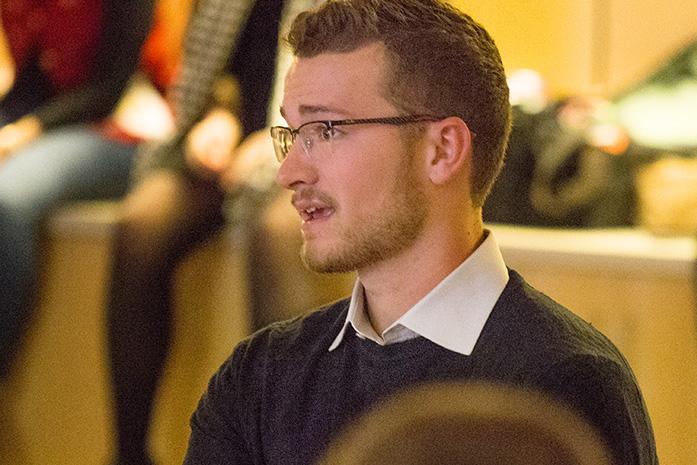Student government voted on a resolution that proposed to encourage the state Legislature to adopt the policy recommendations for Medical Amnesty in Iowa.
By Elianna Novitch
The University of Iowa Student Government passed a resolution at Tuesday’s meeting that encouraged the state Legislature to adopt a medical amnesty policy in Iowa.
According to the UISG Resolution for Medical Amnesty in the state of Iowa, medical-amnesty policies are defined as those that protect underage people from prosecution who experience a medical emergency caused by the illegal possession or consumption of alcohol, such as underage consumption, open container, or public intoxication.
“Public safety is of the utmost importance, and if there are things we can do to protect people, we absolutely should do them,” Sen. Tom Bowman said. “The whole point behind medical amnesty is to make it safer for people to get the help they need and to give people an option they might not have had before.”
Currently, 36 states have implemented medical amnesty.
“Medical amnesty is something that pertains to really everybody here in the state of Iowa, and although the policy specifically protects underage individuals from certain prosecution, it really is an issue that affects everybody,” Bowman said.
The UI has a policy that equates to medical amnesty called the Responsible Action Protocol, which protects students who violate the student code from academic repercussions because of illegal possession or alcohol consumption, including but not limited to suspensions, expulsions, course drops, and evictions.
However, the protocol does not protect students from legal repercussions from state and local authorities.
“We hope that students who face those dangers that are alcohol-related will feel more comfortable calling for medical assistance without fearing those repercussions both from the UI and from local authorities [if the policy passes with the Legislature],” Sen. Lilian Sanchez said.
UISG makes the recommendation to adopt a medical-amnesty policy along with the Iowa State University Student Government.
“We know in today’s world that a lot of students are worried about running into issues with law enforcement, and we don’t want that to ever be a barrier for somebody to seek medical attention,” UISG governmental-relations liaison Andrew Namanny said. “By passing something like medical amnesty, we are allowing students to feel comfortable to reach out and get the help they need without fear of repercussions.”
According to a 2006 Cornell University study, medical-amnesty policies have led to a 7.5 percent decrease in alcohol-related emergency room cases and a 22 percent increase in calls for medical assistance. Medical-amnesty policies have also led to a 61 percent decrease in the number of students who reported not calling emergency services because they feared repercussions.
The resolution will be shared with Gov. Terry Branstad and members of the state House and Senate.
“While we already have a [medical-amnesty] policy in place at the university, we are going to keep pushing for more statewide until we get that environment we have been looking for,” Bowman said.







